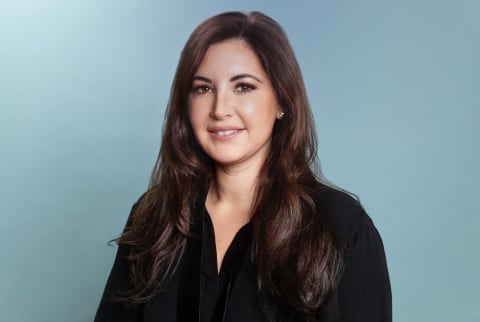Anxiety about the unknown is a topic board-certified psychiatrist Roxanna Namavar, D.O., is quite familiar with, as she specialized in what’s known as “Perceptual Studies” at the University of Virginia Department of Psychiatry. There, she learned how to become curious, not fearful, about the unknown—accepting it rather than becoming frustrated by a lack of understanding. While Namavar studied the concept for years, she offers four coveted tips from her training on spirituality and consciousness. Here’s how you can learn to be comfortable with the unknown (even when it’s scary): “The way that you approach controlling what you can or empowering yourself is really important to keep you going,” Namavar says. So listen to yourself for a moment: What can you control? Is it your diet, morning routine, or intake of information? Can you control your social connections and how you have conversations? “The easier it is to do that, the more you can approach the unknown with curiosity,” says Namavar. In other words—stick to facts, and try to stray from fear. “I’ve had enough of my own personal spiritual experiences that have shown me that there is something greater than myself,” she explains. “That’s something that really grounds me in this life and gives me a real sense of safety.” Sometimes, placing your faith into a higher power—be it God or a sense of energy—can help you shake off any inadequacy you may feel for not knowing all the answers. It’s important to note, however, that Namavar doesn’t want you to brush off any pain or grief you may be feeling. “Your sense of spirituality doesn’t change the grief, but it can give a certain sense of peace and awareness when you can zoom out a little bit.” So while you might feel sad, frustrated, or anxious—honor those feelings while acknowledging there is a higher power or fate we cannot control. If you can find that perfect balance, you’ll have a pretty good sense of awareness and inner peace (it takes time; it’s much easier said than done!). This process can help you discover what information, as mentioned, is based on fact rather than fear. And “to determine that, I believe you really have to understand your own psychology and your own belief structures to be able to see what’s real and what isn’t,” says Namavar. In other words, you have to tap into your intuition to be able to understand what feelings are based on actual events and what feelings are contrived in your mind. But practicing intuition is no easy feat; it takes patience, self-awareness, and time to really get it. But after honing this skill, your intuition can become a tool to rely on when you’re feeling a little lost. Namavar notes, “If we slow down and teach ourselves so listen, it becomes a natural flow—not something you actually have to push yourself to do.” Tossing and turning at night with your anxious thoughts can only make you sleep-deprived (which can lead to a myriad of other issues). When your mind and body are well-rested, you’ll have a better shot of tackling any COVID-induced stress that may come your way. While Namavar’s tips may take some practice, a little intention goes a long way. Being comfortable with the unknown takes self-awareness, acceptance, and a little faith—isn’t that what mindfulness is all about?



